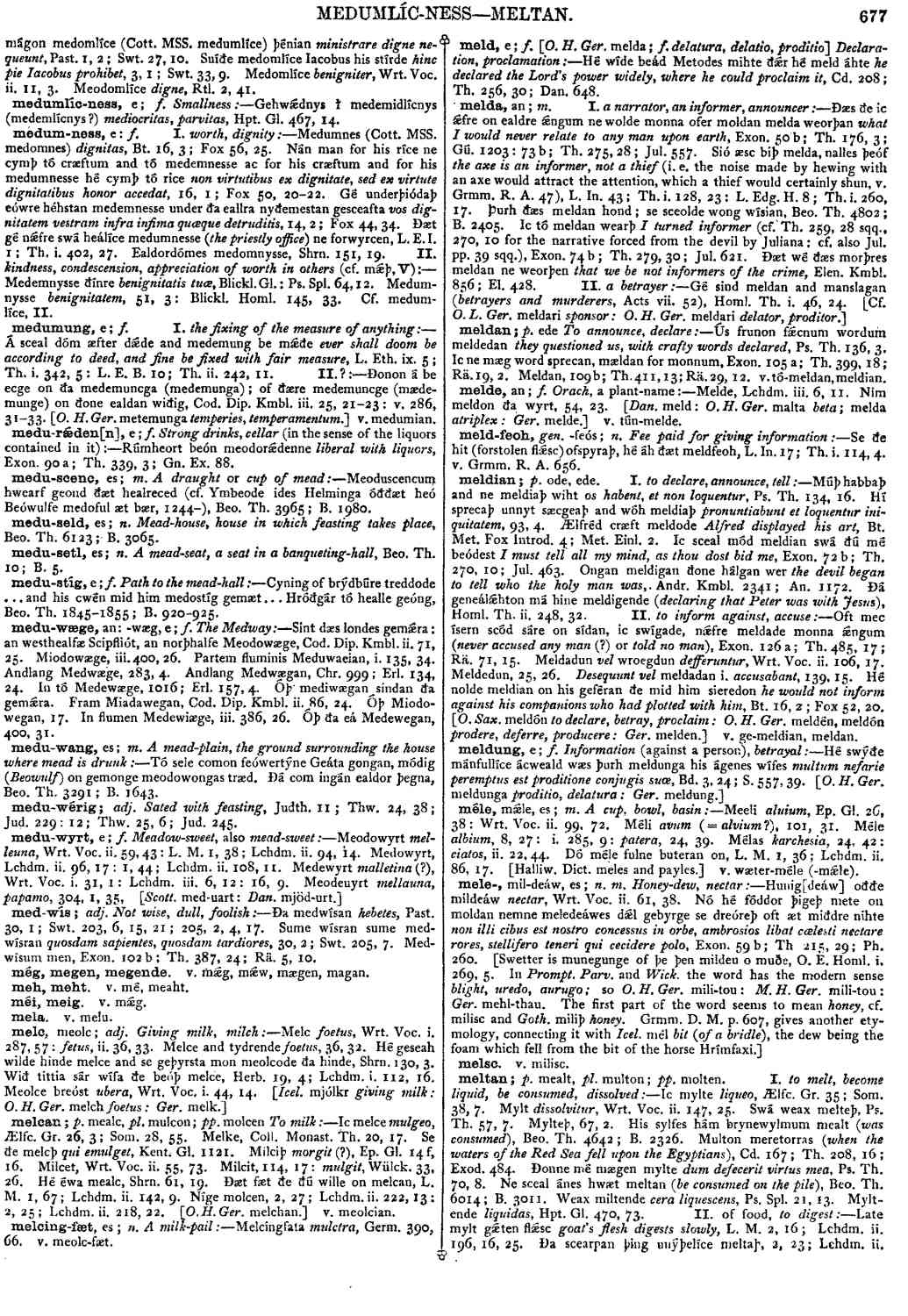melda
- noun [ masculine ]
-
Ðæs ðe ic ǽfre on ealdre ǽngum ne wolde monna ofer moldan melda weorþan
what I would never relate to any man upon earth,
- Exon. 50 b ;
- Th. 176, 3 ;
- Gú. 1203: 73 b ;
- Th. 275, 28 ;
- Jul. 557.
-
Sió æsc biþ melda, nalles þeóf
the axe is an informer, not a thief
(i. e. the noise made by hewing with an axe would attract the attention, which a thief would certainly shun, v.- Grmm. R. A. 47 ),
- L. In. 43 ;
- Th. i. 128, 23: L. Edg. H. 8 ;
- Th. i. 260, 17.
-
Þurh ðæs meldan hond; se sceolde wong wísian,
- Beo. Th. 4802 ;
- B. 2405.
-
Ic tó meldan wearþ
I turned informer
(cf.- Th. 259, 28 sqq., 270, 10
- Jul. pp. 39 sqq. ),
- Exon. 74 b ;
- Th. 279, 30 ;
- Jul. 621.
-
Ðæt wé ðæs morþres meldan ne weorþen
that we be not informers of the crime,
- Elen. Kmbl. 856 ;
- El. 428.
-
Gé sind meldan and manslagan (
betrayers and murderers,
- Acts vii. 52 ),
- Homl. Th. i. 46, 24.
Bosworth, Joseph. “melda.” In An Anglo-Saxon Dictionary Online, edited by Thomas Northcote Toller, Christ Sean, and Ondřej Tichy. Prague: Faculty of Arts, Charles University, 2014. https://bosworthtoller.com/22593.
Checked: 1